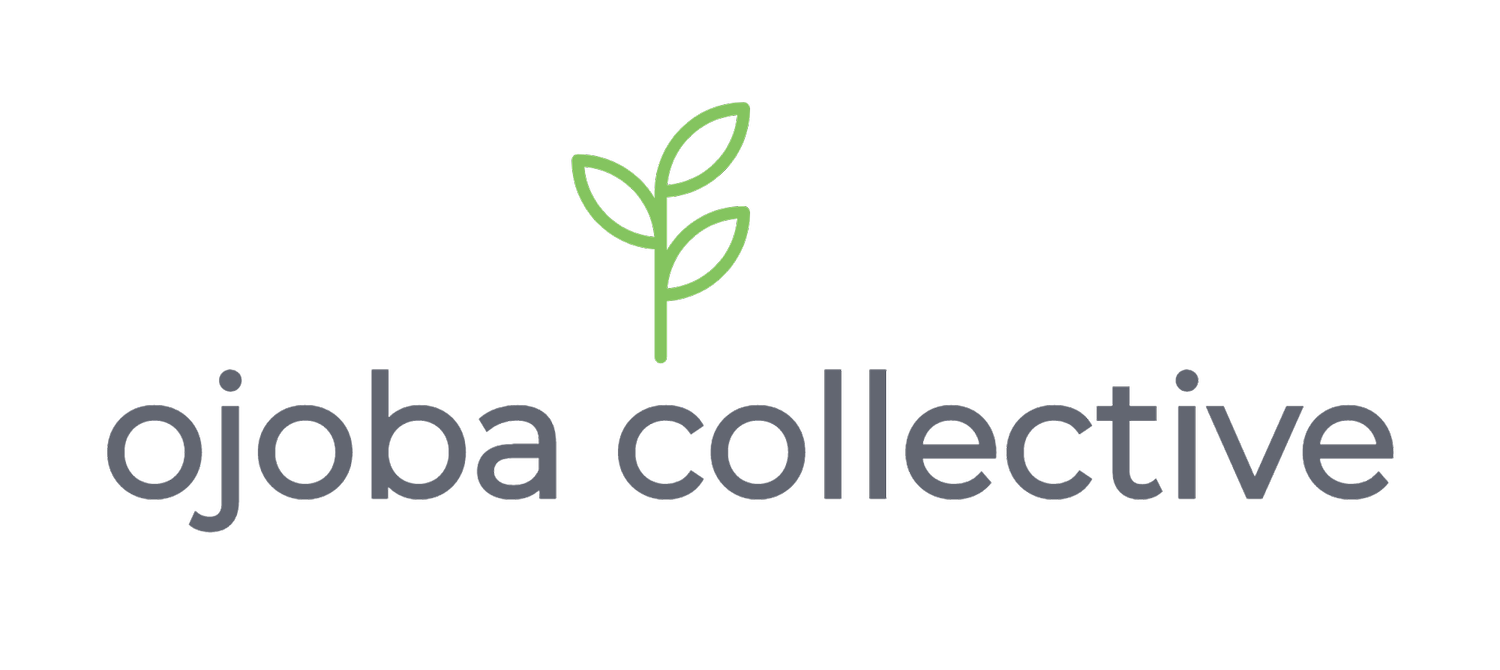
Climate Smart Training Programme
In 2016, we were asked by a corporate client to create a program to address de-forestation in the Savannah region of Ghana. We quickly realized that the landscape was only as safe as the at-risk communities who lived there. A multi-pronged project was concieved. We partnered with Francis Chimsah, a researcher at the the University of Development Studies in Tamale, Ghana. Together we created this programme. Today, it is a local registered NGO (abbreviation: CSTP) in Ghana directed by Dr. Chimsah. Ojoba Collective continues in an advisory and mentorship role.

Project Goals: Interconnected Problems Need Interconnected Solutions
We created a number of inter-connected project components to address the following goals:
Increasing Food Security
Preserving Native Biodiversity
Stopping De-Forestation
Growing More Native Trees
Strengthening Local Community Networks
Valuing Indigenous Culture
Climate Change Adaptation and mitigation

Project Approach: Creating a Grassroots Regeneration Movement
-
Smallholder farmers in northern Ghana have received many different (often contradictory) instructions from government agricultural ministries and international charities on how to grow food. This leaves farmers confused and unsure of whose advice to trust, and results in poor adoption rates.
We worked with local researchers, elders and farmers to compile a list of traditional and ecological farming techniques well suited to farming in the African drylands. We learned that trees had always been a part of farms and livelihoods before modern agricultural practices were given higher status.
-
Agroecology seems like a new concept in the developed world, but for the smallholder farmers, it was how their ancestors farmed.
We created an illustrated story and training manual that told their own story of struggle against the effects of climate change.
In the story, the main character meets an elderly couple farming in the traditional manner. They teach him their techniques and he returns to his village to share what he learns.
Farmers recognize themselves and their common challenges in the story. When they learn that modern science is reaffirming what their ancestors taught, it gives them greater confidence to try new techniques, and instills a sense of pride in their culture.
-
Most villages in the region already had organized farmers groups and women’s groups. Meetings were held with these groups to discuss their farming challenges and the effects of climate change. The story was shared with the groups and their feedback was used to improve the training program. Dozens of farmer interviews were conducted to strengthen the training programme.
-
Local farmers were enthusiastic about the programme and from farmer interviews conducted, we heard repeatedly that farmers felt that the information should be shared with others in their communities.
We created a training manual that could be understood by non-literate people. Motivated farmers volunteered to become “Community Farmer-Trainers.” These farmers taught their neighbors, and because they were already known and respected locally, their information was trusted.
Through this volunteer, community-level approach, were were able to expand the programme easily for minimal cost.
-
Cooking is the main cause of deforestation in the region, as most families still cook over an open fire. We introduced simple, locally made rocket stoves that had been developed in Burkina Faso. The stove could be crafted from freely available local clay, straw, and manure, and reduced firewood consumption and smoke inhalation dramatically. Women could be taught how to build the stoves in an afternoon, and the food still tasted delicious. We interviewed many women, and all were extremely positive on the benefits of using the rocket stoves and felt more women needed to learn about it.
Again, we used the community trainer structure to spread the knowledge across communities. Local women volunteered to become trainers, teaching their neighbors.
-
Part of the agroecology training programme included learning about “Farmer Managed Natural Regeneration,” which is a process of caring and pruning existing trees and stumps to help them re-grow. Emphasis was also but on allowing naturally sprouting tree seedlings to grow. But, after receiving the training, farmers were enthusiastic to add more trees to their farms. We needed a source of native tree seedlings to share with the farmers.
Through our previous research, a number of ecologically and culturally important native tree species were identified. But none of these key species were commercially available at nurseries. We worked with local researchers to understand best practices for propagation and management of seedlings.
Volunteers were selected to undergo additional training in tree nursery management. They were tasked with growing specified quantities of trees to be disbursed to programme participants in their villages.
Measuring Project Impact







